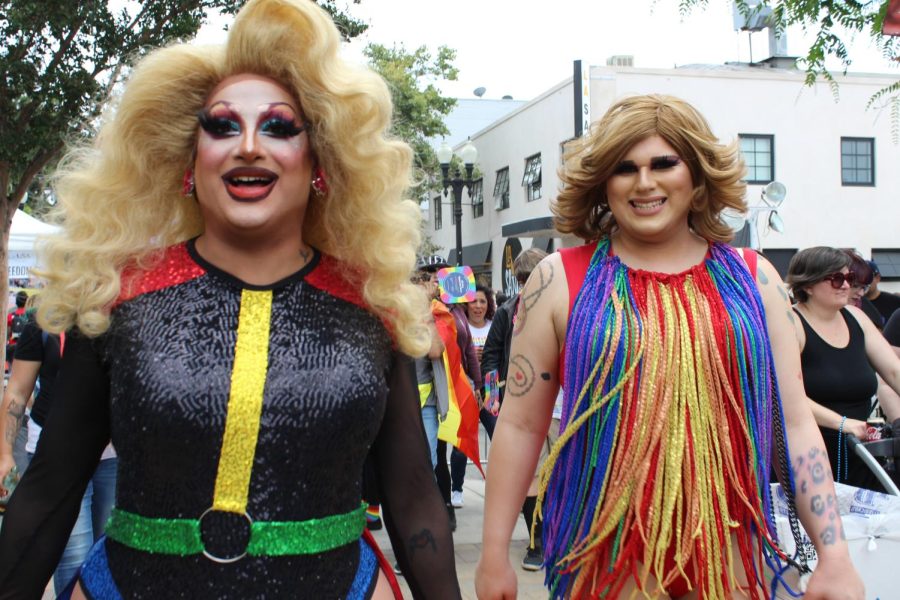“The New Trending Homophobia:” Tennessee Bans Drag Shows
March 24, 2023
Kevin Gustafson, a professor of Lesbian and Gay Literature, once described drag as “a way of celebrating the possibility of the body,” an expression of a side of one’s identity. Over the last few decades, drag performances have grown in popularity, aligning closely with the LGBTQ+ community. The drag queens and kings across the nation who perform in these shows have changed not just the entertainment industry but the world in many impactful ways. However, much of that progress and change has been halted as a result of stringent Republican legislation. Bill Lee, a Republican governor, signed a bill into law on March 2nd that will ban public drag show performances in Tennessee.
This law, passed by a Republican-majority House and Senate, was designed to restrict “adult cabaret performances” or performances “that [feature] topless dancers, go-go dancers, exotic dancers, strippers, male or female impersonators who provide entertainment that appeals to a prurient interest, or similar entertainers.” For those who violate this law, the Tennessee legislature has threatened misdemeanor charges for first-time offenders and felonies for repeat offenders. When this bill goes into effect on July 1, 2023, Tennessee will become the first state in America to outlaw drag show performances. Moreover, this bill is just the first of almost a dozen such measures that are currently being considered by state legislatures across the nation, including Arizona, Texas, Montana, Arkansas, Missouri, and more.
The rationale for the passage of this law has become a major topic of debate between politicians and the drag community. Republicans, such as Tennessee state Senator Jack Johnson, argue that the performances expose kids to inappropriate themes and imagery, stating that “this bill is not anti-drag. It is pro-child.” Advocates of the community disagree, arguing that the new measures would be discriminatory toward the LGBTQ+ population and would violate their First Amendment rights.
Since transgender and drag culture has become more widely accepted, drag performances have fallen victim to more attacks, and many supporters of the community argue the new bill has raised further concerns.
In an interview with CNN, Shangela, a drag performer and contestant in “RuPaul’s Drag Race,” said that with the increase in recognition of the drag community, people are starting to “[see] drag… And it’s forcing, it’s driving conversations that have never had to be had before. And some people are afraid of that.” Whilst acknowledging that some drag shows may be inappropriate for children, Shangela stated that “you can’t characterize the world of drag by one particular type of show.” Similarly, Jonathan Hamilt, the executive director of a non-profit group called Drag Story Hour that hosts performers who read to children, believes bigotry is the driving force behind the legislation. “If drag wasn’t rooted in gay culture and rooted in queer community, I don’t think it’d be up for debate,” he said. “Nobody is banning clowns, nobody is banning miming. This is nothing new, this is just the 2023 trending version of what homophobia looks like.”
Ironically, before the measure was approved in Tennessee, Governor Lee received criticism for being hypocritical when a Reddit user posted a picture from a 1977 yearbook that seemed to show the governor standing next to female classmates who were dressed in men’s suits, while he himself was wearing women’s clothes and a wig. However, when questioned, the governor denied links between the image and the drag performance law.
It is somewhat obvious to us that we wouldn’t ever ban someone from playing sports because it is a form of self-expression. We wouldn’t ever ban someone from playing an instrument because it is a form of self-expression. We wouldn’t ever ban someone from writing because it is a form of self-expression. Why then, should drag shows be banned? Drag shows are the way drag queens and kings express themselves. Even though it might be difficult, it is important that we try to stop more states from hopping on this anti-drag show bandwagon. And, if we can’t, it is imperative that we support those in the drag community by becoming advocates for them and their ideas.

















































































































































